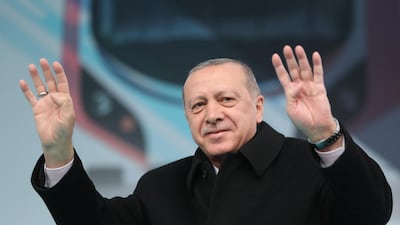Turkish President Recep Tayyip Erdogan and Israeli Prime Minister Benjamin Netanyahu have become embroiled in another spat, this time over the latter’s anti-Arab remarks ahead of an early election.
On Tuesday, Turkey criticised the Israeli premier for his statement that Israel was a country for “the Jewish people” only. Ankara criticised him and what it called his “blatant racism”.
Mr Netanyahu hit back on Wednesday, calling the Turkish leader a “dictator” and “a joke”.
Turkey and Israel have had fraught relations in recent years, particularly over the 2010 Israeli commando raid of the Mavi Marmara in which the Israeli military killed more than half a dozen activists.
The two tried to mend relations and dispatched envoys to each other’s capitals, but that broke down over several issues, including US President Donald Trump’s decision to relocate the US embassy from Tel Aviv to Jerusalem, effectively recognising the city as Israel’s.
After that move, and Israel’s killing of scores of Palestinians in weekly protests in Gaza, Turkey ordered Israel’s ambassador to Ankara to leave.
Then, in December, Mr Erdogan accused Israel of mistreating Palestinian men, women and children. Mr Netanyahu promptly tweeted that Turkey’s leader should “not preach to Israel” and accused Ankara of committing “massacres” against the Kurds both inside and outside of Turkey.
The latest spat was sparked by one of his ministers saying that Israelis must vote for Mr Netanyahu as his main challenger was to rely on forming a coalition with Israel’s largest Arab party.
That forced Israeli model Rotem Sela to post on Instagram: “When the hell will someone in this government convey to the public that Israel is a state of all its citizens and that all people were created equal?”
Mr Netanyahu surprisingly decided to respond to Ms Sela’s criticism. He wrote: “Israel is not a state of all its citizens.”
The Israeli leader has been condemned for aligning with a far-right Jewish party in order to boost his standing at the polls, and for his anti-Arab rhetoric in a bid to win more votes and secure the election win he needs amid a pending indictment on corruption charges.

